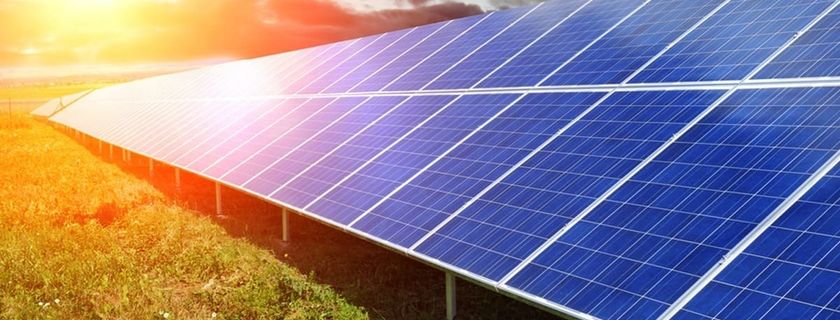
CIRCUSOL: Solar power business models towards a circular economy in Europe (PRESS RELEASE)
CIRCUSOL: Solar power business models towards a circular economy in…

The current linear take-make-dispose mindset is no longer tenable. The numbers are indeed hallucinatory. Currently, 1.72 Earths are already needed to meet our needs. Every year, 55 billion tonnes of biomass, fossil energy, metals and minerals are mined.
By 2050, global resource use is expected to triple. Raw materials are becoming increasingly scarce as the world's population continues to grow.
At the same time, solar power is booming. With a total installation of 400 GW by 2017 – a staggering 30% increase from 2016, PV currently accounts for about 5% of the world’s electricity generation capacity. Solar energy is therefore considered to be one of the most promising forms of renewable energy sources because it can provide an answer to the CO2 reduction targets imposed by governments and international agreements. However, as the PV market grows, so will their demand for raw materials, as well as their waste output.
If Earth’s history is compared to a calendar year, modern human life has existed for 23 minutes and we have used one third of Earth’s natural resources in the last 0.2 seconds.
In light of these problems, the call for a circular economy is growing stronger and stronger. In contrast to the linear economy, the circular economy is based on the idea that the economy is recovering, as it were, by designing products for reuse, disassembly and recycling. The circular economy is implemented in various, innovative business models, including the product-service system model (PSS). In a PSS, the usefulness of a product and its accessibility take precedence over possession. The focus is on function, not ownership. Customers pay for the service that the product provides, without the need for them to own the product themselves. The producer earns profit from selling the use of the product. The lesser material is needed and the longer the lifespan of the product, the greater the potential profit margin. Moreover, if the BM (business model) is set up in such a way that the manufacturer regains possession of their products at the end of the useful life, all incentives are present to not only give products a longer lifespan but also to make them reusable.
The upcoming series of five articles will examine which legal problems can arise within the product-service system specifically applied in the photovoltaic sector. The combination of this BM in the photovoltaic sector is referred to as Solar as a Service (SaaS). In this business model, the service provider remains the owner of the PV installation that is installed on the roof of the user. The user pays for the function of the system, i.e. the generated solar energy.
In the research, only the private, residential application of the SaaS business model is considered. The commercial use of the SaaS business model is therefore not taken into account. In addition, the series of articles is based on the Flemish/Belgian legislation. If applicable, the European legislative framework will be outlined. Nevertheless, the legal principles will often be similar in other civil law countries.
ABOUT THE AUTHOR: Emilie Verbeure obtained her law degree at the KU Leuven with the specialization in International & European law. She then proceeded with the master’s studies in Environmental Sciences at the University of Antwerp where she conducted research on the legal considerations, possibilities and barriers for PSS in the photovoltaic sector made in the context of the European project CIRCUSOL, in collaboration with VITO. She currently works as a lawyer at Flemish Energy Agency.
CIRCUSOL, ‘Why CIRCUSOL’, s.d., www.circusol.eu/en/overview/why-circusol (Accessed 6 August 2019).
FRANCO, M., GRÖSSER, S., TSANAKAS, I., LEMAIRE, E. and WANG, K., ‘A systematic literature review of the photovoltaic and electric vehicle battery value chains for the development of a circular economy in the PV industry’, 2018.
IMSA AMSTERDAM, ‘Unleashing the Power of the Circular Economy’, 2013, https://www.viawater.nl/files/unleashing_the_power_of_the_circular_economy-circle_economy.pdf.
MICHELINI, G., MORAES, R.N., CUNHA, R.N., COSTA, J.M.H. and OMETTO, A.R., ‘From Linear to Circular Economy: PSS Conducting the Transition’, Procedia CIRP 2017, 2–6.
VLAANDEREN CIRCULAIR, ‘Product-dienstcombinaties’, s.d., vlaanderen-circulair.be/nl/kennis/wat-is-het/product-dienstcombinaties (Accessed 25 June 2019).

CIRCUSOL: Solar power business models towards a circular economy in…